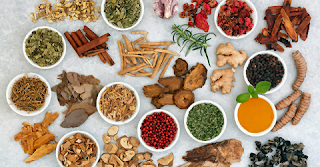In a world that seems increasingly fast-paced and demanding, managing stress has become a top priority for many. Among natural stress-relief options, adaptogens are gaining recognition for their ability to help the body resist physical, emotional, and environmental stressors. But what exactly are adaptogens, and how do herbs like ashwagandha, reishi mushroom, and holy basil work?
What Are Adaptogens?
Adaptogens are natural substances, usually herbs or mushrooms, believed to stabilize physiological processes and promote homeostasis. Unlike stimulants or sedatives that push the body in one direction, adaptogens work by supporting balance. The term was coined in the 1940s by Russian scientist Dr. Nikolai Lazarev, and later developed through studies on plants that could increase resistance to stress in soldiers and pilots.
How Do Adaptogens Work?
Adaptogens interact with the hypothalamic-pituitary-adrenal (HPA) axis and the sympathoadrenal system, both of which govern stress responses. They modulate cortisol levels and support the production of stress-buffering hormones like DHEA. Some also influence the immune system, inflammation, and mitochondrial function. This allows for better physical and mental resilience in the face of chronic stress.
Top Adaptogens for Stress and Resilience
Ashwagandha (Withania somnifera)
One of the most studied adaptogens, ashwagandha is renowned for reducing anxiety and promoting calm. Clinical trials show that it can reduce cortisol levels by up to 30%, improve sleep quality, and boost testosterone in men. It's often used for:
- Reducing stress and anxiety
- Enhancing mood and cognitive function
- Improving endurance and recovery
Ashwagandha is available in capsules, powders, and teas. Typical daily doses range from 300–600 mg of a standardized extract.
Reishi Mushroom (Ganoderma lucidum)
Used in traditional Chinese medicine for over 2000 years, reishi is often called the “mushroom of immortality.” It contains triterpenoids and beta-glucans that modulate immune response and support adrenal function. Scientific studies suggest benefits like:
- Lowering fatigue and irritability
- Improving sleep and emotional balance
- Enhancing immune defense
Reishi is best consumed as a hot-water extract in teas, tinctures, or capsules. Dosages typically range from 1.5–5 grams per day, depending on concentration.
Holy Basil (Ocimum sanctum or Tulsi)
Widely used in Ayurvedic medicine, holy basil is known for its anti-inflammatory and anxiolytic effects. It supports glucose metabolism, modulates cortisol, and even offers protection against heavy metals and toxins. Benefits include:
- Reduced stress perception and mental fog
- Enhanced cognitive performance
- Regulated blood sugar levels
You can consume holy basil as fresh leaves, tea, or extracts. A common dose is 300–2000 mg per day of a concentrated extract.
Scientific Evidence and Expert Views
A growing number of clinical trials support the efficacy of adaptogens. A 2019 review published in Phytomedicine concluded that several adaptogenic herbs show strong potential for improving mental performance under stress and reducing fatigue. Researchers at the Swedish Herbal Institute found that adaptogens like Rhodiola and Ashwagandha increase stress tolerance and cognitive resilience without overstimulation.
Dr. Brenda Powell from the Cleveland Clinic’s Center for Integrative Medicine notes, “Adaptogens are especially useful in helping people navigate chronic stress where traditional medications may not be ideal long-term.”
Forms and Safe Usage
Popular Dosage Forms
- Capsules and tablets: Convenient and often standardized for active compounds
- Tinctures and extracts: Fast-acting and easier to absorb
- Teas and decoctions: Traditional and gentle on digestion
- Powders: Can be added to smoothies or meals
Safety and Precautions
- Start with low doses to assess tolerance.
- Pregnant or nursing individuals should consult a healthcare provider.
- Some adaptogens may interact with medications like sedatives or blood pressure drugs.
- Cycle adaptogens (e.g., 5 days on, 2 days off) to maintain efficacy and avoid tolerance.
Adaptogens offer a compelling natural approach to stress management, especially for those dealing with chronic tension, fatigue, or emotional burnout. Herbs like ashwagandha, reishi, and holy basil don’t just mask stress—they help recalibrate the body’s internal response system, improving resilience and recovery. As with any intervention, personalization and evidence-based use are key.




Post a Comment
Post a Comment